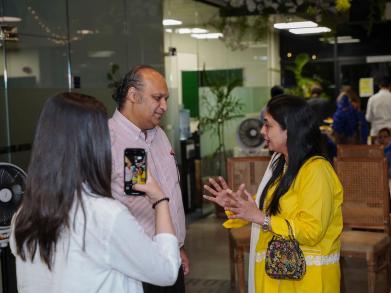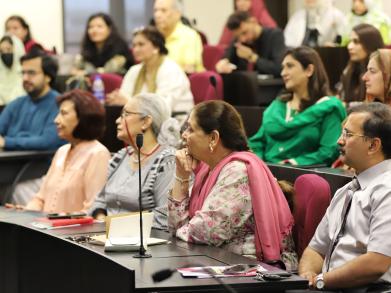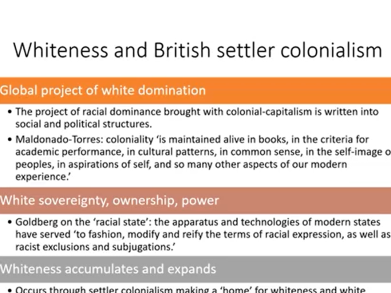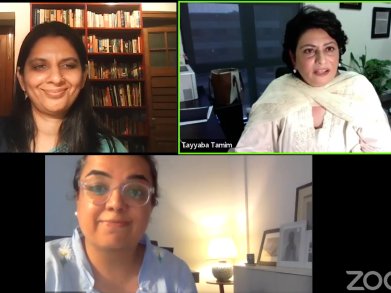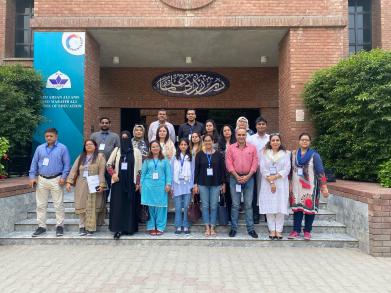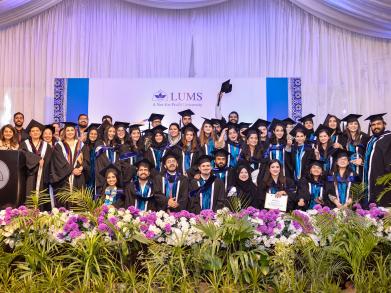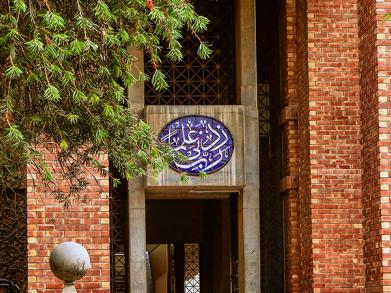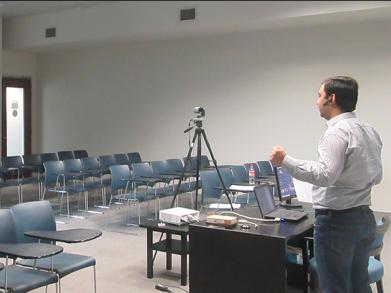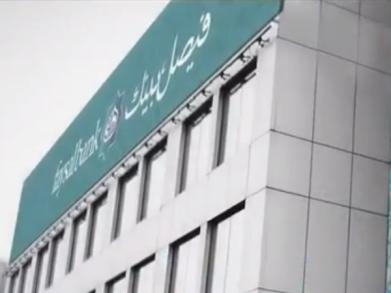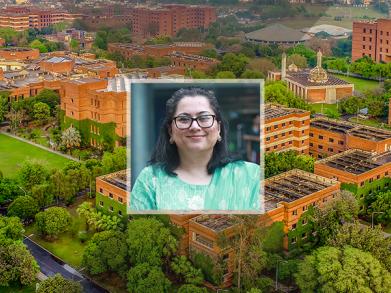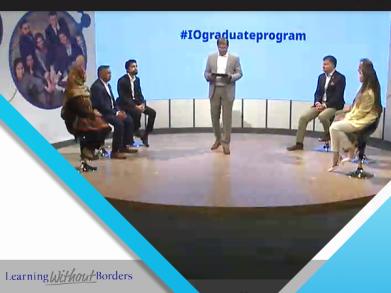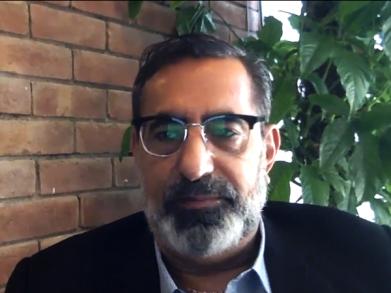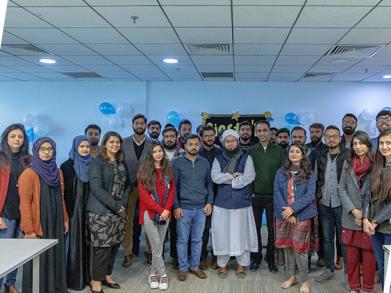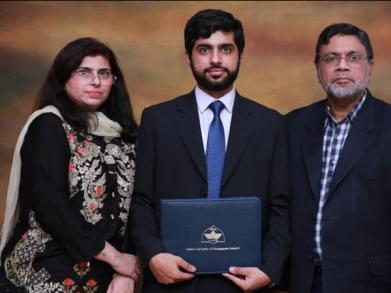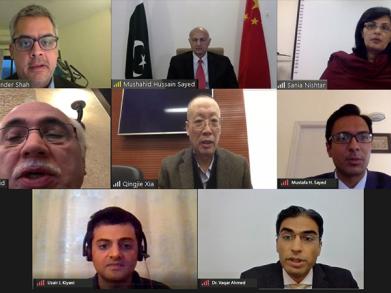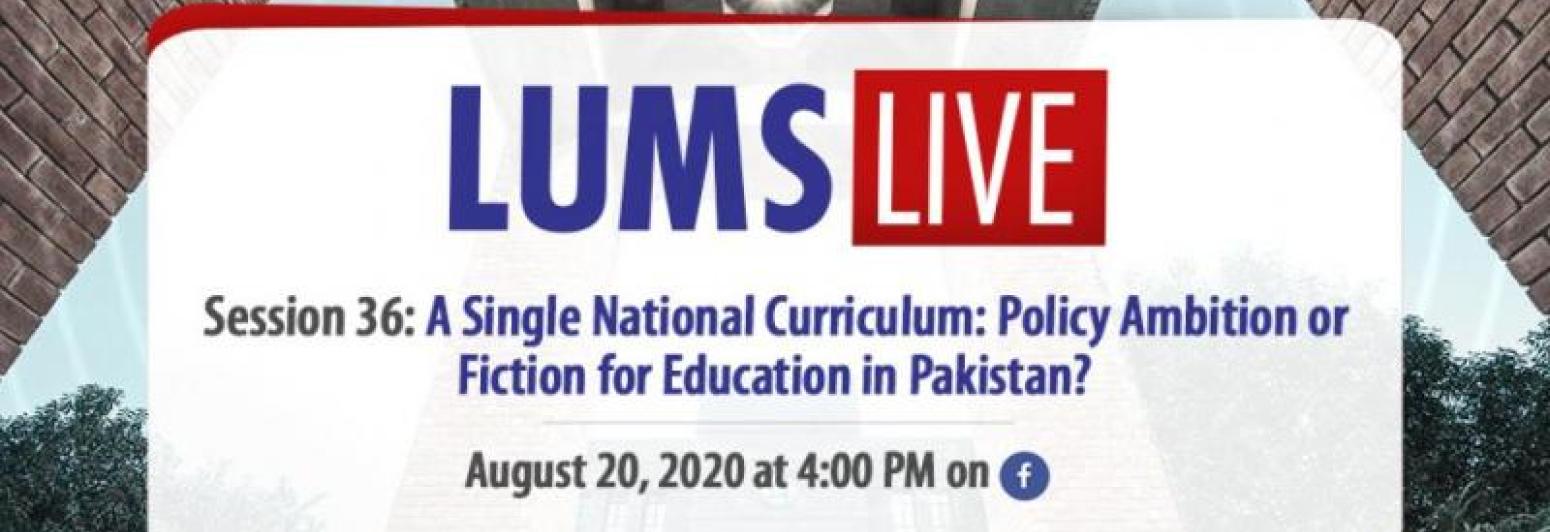
to
The recent announcement of a national curriculum that shall be applicable to all kinds of primary schools in Pakistan has not just attracted all types of responses, but also presented a unique opportunity in Pakistan’s history to debate education publicly. From questions of federalism and the relationship between state and religious beliefs of its citizens to curricular teaching loads and implementation challenges, the Single National Curriculum seems to be attempting to address them all. But is this order too tall?
Join us for the thirty-sixth session of LUMS Live: A Single National Curriculum: Policy Ambition or Fiction for Education in Pakistan? Our distinguished panelists include Dr. Faisal Bari, Interim Dean, School of Education; Dr. Riaz Ahmad Shaikh, Dean, Faculty of Education and Social Sciences, SZABIST; Ms. Umbreen Arif, Education Specialist and Advisor to the Ministry of Federal Education and Professional Training and Dr. Soufia Siddiqi, Assistant Professor, School of Education, LUMS.
Date: Thursday, August 20, 2020
Time: 4:00 pm (PST)
Moderated by Adeel Hashmi, the session will be broadcast live via the LUMS Facebook page. Please click here to listen to our panelists discuss how the Single National Curriculum will transform the education landscape of Pakistan.
During the session, please use the live stream's comments bar to ask questions or email them at ask@lums.edu.pk
After the session, kindly share your feedback and suggest future topics for discussion/guests here.
Join us for this important conversation!
Profiles of Panelists
Dr. Riaz Ahmad Shaikh, Dean, Faculty of Education and Social Sciences, Shaheed Zulfikar Ali Bhutto Institute of Science and Technology (SZABIST), Karachi
Dr. Shaikh served as editor of the peer-reviewed international research journal, Journal of Management and Social Sciences from 2007 to 2010, and as Managing Editor of Asia Journal of Global Studies. In 2017, he published an Urdu translation of the collected speeches and papers of sociologist, Hamza Alavi and in 2019, released his book, Sahar honay tak (Until Morning), which documents the history of the Democratic Students’ Federation. His fields of interest are religious extremism, fundamentalism and civil-military relationships in Pakistan.
Ms. Umbreen Arif, Education Specialist and Advisor to the Ministry of Federal Education and Professional Training
Ms. Arif has more than 20 years of experience in the education sector, providing policy advice, technical and analytical support, programme supervision and coordination with donor and government partners in Pakistan. She has led the design and supervision of education reform programmes, as well as multi-sector programmes addressing education, health, nutrition, governance and disaster risk preparedness across Pakistan. Her main area of interest and expertise is Education Policy and Governance, Early Childhood Education and Teacher Management. Ms. Arif is currently working as Education Advisor with the Ministry of Federal Education and Professional Training, Government of Pakistan.
Dr. Faisal Bari, Interim Dean, School of Education, LUMS
Dr. Bari is an Associate Professor in the Department of Economics at the School of Humanities and Social Sciences and Interim Dean of the School of Education at LUMS. His current teaching interests are in the areas of philosophy of education inclusion, economics of education, game theory, microeconomics and industrial organisation. His research interests are also in the same areas. He writes a fortnightly column for the daily, Dawn.
Dr. Soufia Siddiqi, Assistant Professor, School of Education, LUMS
As part of the faculty at the School of Education, Dr. Siddiqi specialises in qualitative research methods as well as education policy and curriculum design. On the implementation side, she applies design ethnography, process mapping, and data to understanding what makes policy decisions tick (or not). Previously, Dr. Siddiqi was Technical Advisor to the School Education Department, Punjab and a member of the Punjab Examination Commission, where she led the Technical Committee for the province’s 2019 Assessment Policy Framework.



